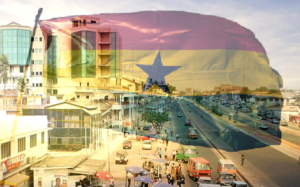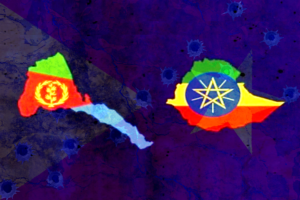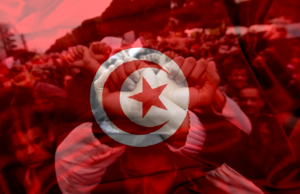Zimbabwe’s New Deputies Signal Military–Political Power Balance Amid Fragile Economy
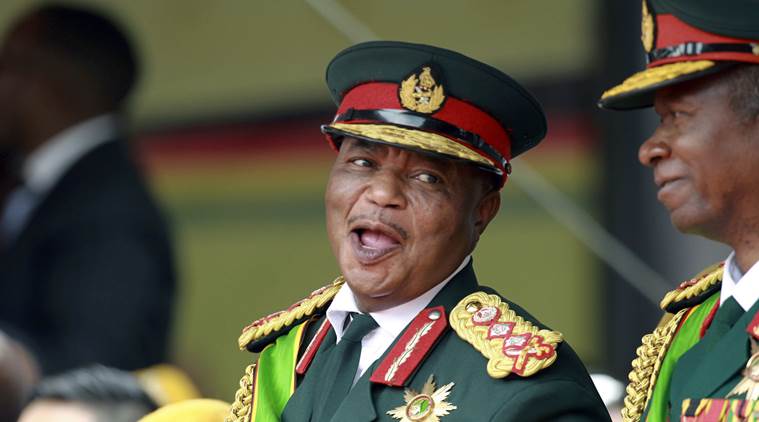
FILE - In this Friday, Nov. 24, 2017 file photo, Army General Constantino Chiwenga smiles during the presidential inauguration ceremony in the capital Harare, Zimbabwe. Zimbabwe's state-run media is reporting that new President Emmerson Mnangagwa has appointed the country's former military commander as one of his two vice presidents. The naming of Constantino Chiwenga deepens concerns among some in the southern African nation about the military's close ties with Mnangagwa, who took power last month after Chiwenga led a military takeover to oust longtime leader Robert Mugabe. (AP Photo/Tsvangirayi Mukwazhi, File)
Constantino Guveya Dominic Nyikadzino Chiwenga (born 25 August 1956) is a Zimbabwean politician and former army general. He has served as First Vice-President of Zimbabwe since December 2017 under President Emmerson Mnangagwa. Chiwenga played a decisive role in the 2017 military intervention that led to the resignation of Robert Mugabe, after nearly four decades in power.
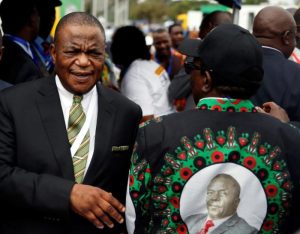
Before entering politics, he rose through the ranks of the Zimbabwe Defence Forces, ultimately serving as Commander. His military background has strongly influenced Zimbabwe’s political landscape, particularly in shaping the balance between civilian authority and military power. Beyond politics, Chiwenga’s prominence carries economic and social implications, as his leadership reflects the enduring role of liberation-era figures in both governance and national identity.
In Harare Zimbabwe, President Emmerson Mnangagwa has appointed retired army chief Constantino Chiwenga and long-serving politician Kembo Mohadi as his vice presidents, a move that underscores the delicate fusion of military influence and political continuity shaping the country’s post-Mugabe trajectory.
Chiwenga, widely viewed as the architect of the military intervention that ended Robert Mugabe’s 37-year rule, represents the armed forces’ enduring role in national governance. Mohadi, a veteran of multiple ministerial posts, brings institutional memory and party loyalty. Their appointments confirm ZANU-PF’s preference for stability through established networks rather than reform-oriented disruption.
Economically, the new leadership faces daunting challenges: a fragile currency, strained regional trade ties, and widespread unemployment. The appointment of figures tied to the liberation legacy may reassure some international partners, notably China, which remains a critical investor, but it also risks deterring Western donors and private capital wary of military-backed politics.
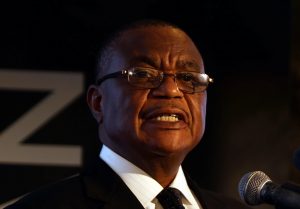
The political reshuffle extends beyond symbolism for Zimbabwean families. Years of inflation, shortages, and job scarcity have reshaped household dynamics, with migration, remittances, and informal trade becoming survival mechanisms. Socially and culturally, the enduring dominance of liberation-era leaders fuels debates over generational renewal, as younger citizens seek inclusion in governance and equitable economic opportunity.
Regionally, Mnangagwa’s consolidation echoes broader Southern African patterns, where the military often acts as both arbiter and guarantor of political order. The implications for cross-border trade, labor mobility, and investment flows are significant, especially as South Africa and neighboring states depend on Zimbabwean labor and goods.
The political shift thus represents more than a succession story; it is a recalibration of power with consequences for business confidence, civic trust, and social resilience. Whether the new deputies can navigate Zimbabwe toward inclusive growth and institutional renewal remains a test watched closely across the region.


